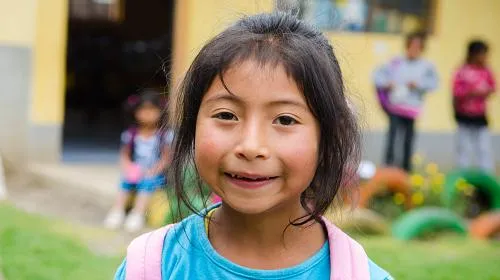Advocates voice the need for a robust U.S. foreign assistance budget and attention to gender-based violence.
WASHINGTON, D.C. (March 4, 2013) – From across the country, more than 250 advocates from the poverty-fighting organization CARE will convene at the organization’s annual conference and International Women’s Day Celebration to voice their support for critical funding and programs to improve the lives of marginalized women and girls around the globe.
Key speakers include former Senate Majority Leader Bill Frist, Washington Post columnist Michael Gerson, CNN’s Senior Congressional Correspondent Dana Bash and former U.S. Congresswoman Lynn Woolsey.
This year marks CARE’s 11th annual conference, which draws in advocates from nearly every state, partner organizations, corporations and leaders in global development, media and politics to advocate for the crucial need for continued foreign assistance funding. This year’s conference also highlights the issue of gender-based violence. It is estimated that at least one out of three women globally will be beaten, coerced into sex, or otherwise abused in her lifetime. Gender-based violence can often thwart or hinder development efforts.
“It is truly amazing that so many passionate advocates have come to Washington to speak out for marginalized girls and women around the world,” said Helene D. Gayle, president and CEO of CARE.
“With one voice, they are standing up for vital, effective U.S. foreign assistance that changes millions of lives for the better. They’re also asking our leaders to do more to address critical issues such as gender-based violence. Smart investments in foreign aid do not weaken us; in fact, they strengthen our nation’s image abroad and enhance our national security. Even in this tough economy, we simply cannot afford any more cuts.”
With the issue of gender-based violence highlighted at this year’s conference, the event will also be an opportunity to celebrate the passage of the Violence Against Women Reauthorization Act (VAWA), a law which is significant for women and girls in the US. The law also includes provisions to prioritize the reduction of child marriage internationally. Specifically, it requires the U.S. Secretary of State to “establish and implement a multi-year, multi-sectoral strategy to prevent child marriage.”
The celebration kicks off tonight with a diplomatic reception at the French Embassy. CARE will screen a portion of the documentary film Girl Rising, which is set for release later this week. Girl Rising showcases the stories of nine girls in countries from Peru to Nepal who have fought to attend school despite the extreme poverty they faced. After the screening, Dr. Gayle will host a discussion with film’s producer Martha Adams.
On Wednesday, advocates will participate in a trainings sessions and workshops on topics such as media outreach and international development. The training will equip advocates as they head to Capitol Hill on Thursday for more than 175 meetings with members of Congress. They will be taking an active role in influencing U.S. policies that affect the world’s most vulnerable populations.
“Giving money or holding personal convictions is not sufficient to bring about sustainable change in people’s lives,” said CARE advocate Henry A. Bromelkamp of Minnesota, who is attending the conference. “The real solution is to change the policies and practices that bring about and promote poverty and inequality, and that requires us to work to change the system. For Americans, the best way to do that is to talk to Congress.”
Many partners helped make CARE’s Conference and International Women’s Day celebration possible including, The UPS Foundation, Gap, The Walmart Foundation, Pfizer Global Health Fellows, Cargill Inc., Colgate-Palmolive Company, Delta Air Lines and General Mills.
For more information on the CARE National Conference and International Women’s Day Celebration, visit www.careconference.org. To receive press credentials, contact Stephanie Chen (schen@care.org or 404-819-6638).
Media Contacts:
Washington, D.C.: Stephanie Chen, CARE, schen@care.org, +1.202.595.2824, +1.404.819.6638
Atlanta: Nicole Harris, CARE, nharris@care.org, +1.404.979.9503, +1.404.735.0871

